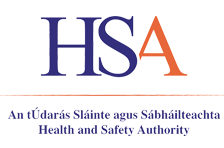Export and Import of Hazardous Chemicals
The PIC Regulation
The Prior Informed Consent ‘PIC’ Regulation (EU No 649/2012) implements the Rotterdam Convention in the EU. This convention is a multi-lateral treaty promoting the shared responsibility and cooperative efforts in the international movement of hazardous chemicals in order to protect human health and the environment from potential harm. It allows countries to monitor and control the export and import of certain hazardous chemicals, refuse and/or to place certain conditions on exports.
In the EU, the PIC Regulation requires exporters of certain hazardous chemicals to notify their Designated National Authority (DNA) prior to export outside of the EU. Since the withdrawal of the UK from the EU, this now includes Great Britain. EU exporters are also required to report actual tonnages of these hazardous chemicals on an annual basis. Notification and reporting is facilitated through the ePIC IT tool, which is hosted by the European Chemicals Agency (ECHA).
Non-EU exporters of hazardous chemicals listed in Annex III of the Rotterdam Convention must also notify their DNA of the exports of these chemicals to the EU. The EU importer must report the actual tonnage of these chemicals imported on an annual basis in ePIC, as well as comply with REACH and CLP legislative obligations.
Further Information
Importers Information Sheet (HSA)
Export Import Information Sheet (HSA)
Brexit information imports and exports PIC
